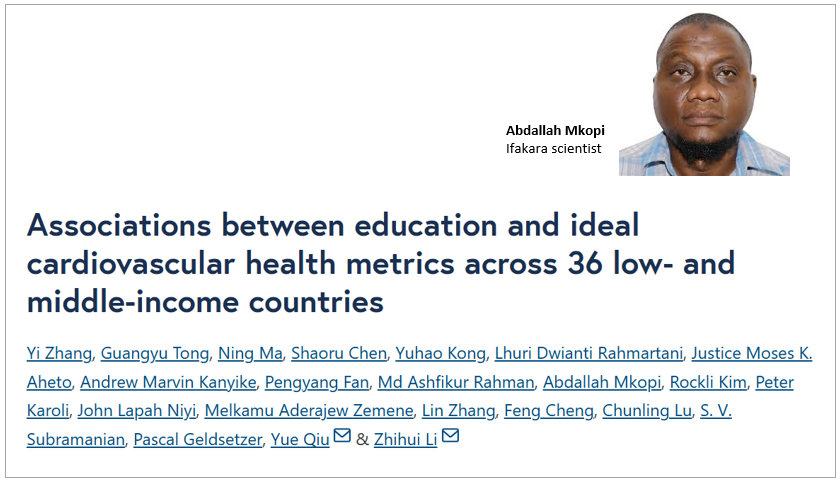
HEART WELLNESS: Education linked to better outcomes in a global study

A new global analysis of health data from 36 low- and middle-income countries (LMICs) reveals a strong connection between education levels and cardiovascular health — a finding that could reshape prevention strategies in resource-limited settings.
Cardiovascular diseases (CVDs) remain the world’s leading cause of death, yet most prevention research has focused on high-income countries. The study published in BMC Medicine in April 2025 provides rare insights from low- and middle-income countries (LMICs), showing that education may be a powerful tool for reducing heart disease risk.
By improving access to education, it may be possible to indirectly lower rates of high blood pressure, obesity, and unhealthy lifestyles — major contributors to millions of preventable deaths each year.
The big question
How does education influence heart health in LMICs — and can better schooling help curb the rising burden of CVD?
Researchers set out to explore the relationship between education attainment and the Ideal Cardiovascular Health Score (CVHS), which measures seven key health factors defined by the American Heart Association: smoking, diet, physical activity, body mass index (BMI), blood pressure, blood glucose, and cholesterol.
This study used data from the WHO STEPwise Approach to Surveillance (STEPS) surveys conducted in 36 low- and middle-income countries between 2010 and 2020 to track risk factors for non-communicable diseases (NCDs), such as heart disease. The surveys carefully selected regions, households, and adults to represent each country’s population. Participants answered questions about their lifestyle, including exercise and alcohol use, while trained staff measured weight, height, blood pressure, blood sugar, and cholesterol following standard WHO procedures.
The final analysis included 81,327 participants, providing a large and diverse dataset to explore how education relates to heart health across multiple countries.
Key findings
- Primary education boosts heart health: Over half (52.9%) of people with primary education had ideal cardiovascular health—more than those with no education or tertiary schooling.
- Middle education levels shine: Five out of seven heart health measures peaked among those with primary or secondary education, forming a clear inverted U-shaped trend.
- Income shapes the story: In low- and lower-middle-income countries, the inverted U pattern was strongest, while in upper-middle-income countries, heart health rose steadily with more education.
- Smarter habits, healthier hearts: Higher-educated individuals smoked less, ate better, and exercised more—showing how knowledge shapes lifestyle.
- Better numbers on the scale: Education also translated to lower blood pressure and healthier BMI, highlighting its impact on biological health.
Conclusions and recommendations
The researchers conclude that investing in education could yield broad health benefits beyond economic and social gains, as they emphasize, “Improving access to education could indirectly lower rates of high blood pressure, obesity, and unhealthy lifestyles — factors that drive millions of preventable deaths each year.”
They urge governments and global health organizations to integrate educational access and quality into long-term cardiovascular disease control efforts.
Study led by global experts
This study was spearheaded by experts at the Vanke School of Public Health, Tsinghua University, Beijing, China, with Yi Zhang as lead author. The research involved scientists from prestigious institutions worldwide, including Yale School of Medicine, Universitas Indonesia, University of Ghana, Busitema University, Khulna University, Korea University Graduate School, Gushegu Municipal Health Directorate, Debre Tabor University, Monash University, Harvard Medical School, Stanford University School of Medicine, the National Institute for Medical Research, and the Ifakara Health Institute represented by Dr. Abdallah Mkopi.
Read the publication here.
